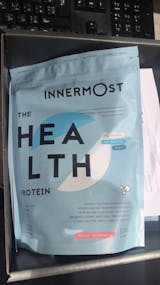Don’t worry – we get it. Whilst we like to think of diets as a positive lifestyle change, and something to celebrate, we understand that sometimes diets do require cutting down on some of your favourite foods, and this can make us a little bit sad. That’s why a lot of people are a little confused when they come across the Dopamine Diet, which has been famed for the diet’s aim of boosting happiness levels.
First curated in 2017, the Dopamine Diet, also known as the Happy Diet, has risen dramatically in popularity in recent times as a result of celebrity influence (of course). First created by Michelin star chef Tom Kerridge, who stated that the diet helped him shed eleven stones in three years, the diet has varying satisfaction levels.
Some users have explained that the diet is too meat-heavy, some too expensive and some saying the recipes are too complicated, but others have raved about the technique, citing the diet as an inspiration, life-changing and unique. But what is it? Has Tom Kerridge cracked the key to dieting once and for all?
These reviews really sparked our interest, so we had a look into this so-called happy diet. Let’s do this…
What is the dopamine diet?
The diet varies from person to person depending on personal preferences, but all varieties revolve around the premise that the foods included enhance dopamine levels – hence the name ‘the happy diet’.
Time for a quick science lesson: dopamine is a chemical responsible for stimulating feelings of motivation, pleasure and reward. The release of dopamine is stimulated by exercise, sleep, music and you guessed it… foods.
Combining staple food groups, fun flavours and nutritious ingredients, the dopamine diet recommends you focus your meals and snacks around the following foods:
- Meats: chicken, turkey and beef
- Dairy: cheese, milk and yoghurt
- Nuts: almonds, walnuts and pecans
- Fruit: bananas, oranges and apples
- Omega-3 Fish: salmon, mackerel and tuna
- Eggs
- Dark chocolate
- Heathy fats: avocado, olive oil
This range of food groups and types means that creating healthy, nutritious meals is a no-brainer. As well as incorporating these foods into your diets and recipes, the happy diet also advises you to steer clear of alcohol (a depressant), caffeine (a key player in anxiety and stress) and processed sugars (which have been linked to obesity).
The creation of the dopamine diet
How did the dopamine diet come about? Well, there’s a few reasons for this. There is evidence to suggest that clinically overweight people and those that struggle with weight gain are more likely to have notable impairments in their dopamine pathways. So, the dopamine diet has been designed to combat this issue.
As well as this, many diets are designed purely to reach your fitness goals, whether that be to lose weight, increase your stamina or tone up. The dopamine diet is different. This diet aims to not only improve your health, but your happiness too. Boom. The dopamine diet was born.
We love that - it’s something we can definitely get on board with.
Dopamine diet benefits
Aside from the dopamine diet increasing your mood and overall happiness levels, this happiness diet comes with a heap of other benefits to get you on board:
- Fewer cravings
- Increased motivation levels
- Boosted energy
- Improved weight loss results
- Better performance
- Improves your memory
- Better focus levels
- Reduces symptoms of depressions
Tom Kerridge hails the diet for his weight loss, praising his increased happiness levels for sticking to the diet and ultimately, getting the results he achieved. Makes sense!
Summary
As big believers in positive lifestyle changes through exercise, supplementation and nutrition, here at Innermost we are supporters of the diet. Anything that helps you achieve your fitness goals and mood earns a big tick from us.
As we mentioned, dopamine plays a key role in improving your focus. If you’re looking to try out the dopamine diet in an attempt to improve your concentration levels and performance, why not check out The Focus Capsules? This nootropic has been formulated to give you a daily boost when it comes to cognitive functioning, and is jam-packed with natural, research-backed ingredients.
Fancy giving the Dopamine Diet a go? You can grab Tom Kerridge’s book from all good bookstores.























